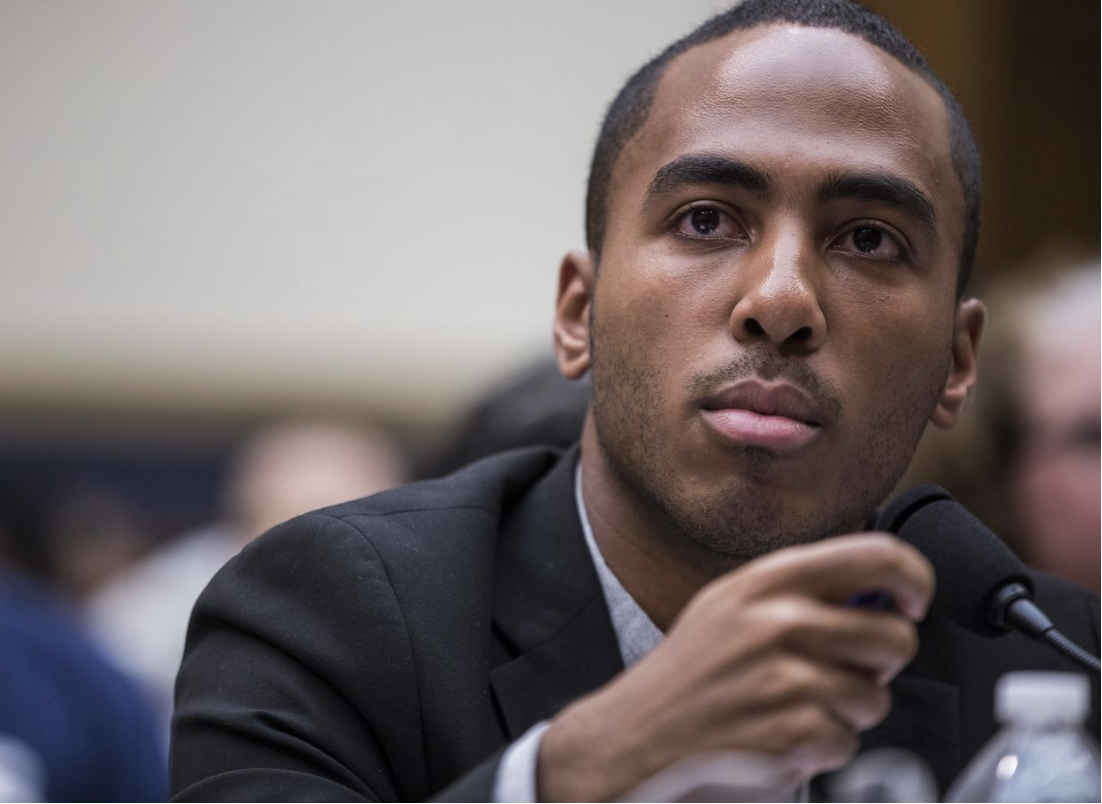By: Jason L. Riley – wsj.com – October 25, 2023
Chris Anderson, the British entrepreneur behind the popular TED Talks—online lectures that often receive millions of views—has been embroiled in a public spat with Coleman Hughes, a podcaster and prolific essayist who writes about culture, politics and race. I first met Mr. Hughes sometime in the late 2010s when he was still an undergraduate philosophy major at Columbia. Since then, his writings have been published in the Journal and the, among other outlets. He has testified before Congress and participated in academic conferences in the U.S. and Europe. And he’s only 27.
In April, Mr. Hughes was invited to give a TED talk about colorblindness—the topic of his forthcoming book. The talk’s theme, as he explained recently in a podcast interview with Glenn Loury, was that colorblindness shouldn’t be a “dirty word,” which it has become on the political left. The concept “was at the core of the antislavery movement, the core of the civil-rights movement, and was later abandoned,” Mr. Hughes said. “We should reinvestigate the wisdom of it as a principle. The idea of colorblindness is that no one ever gets penalized for their racial identity. And there’s a logic to that for governing a racially diverse society in the long run.”
That’s common sense. But we live in an age when common sense is not only uncommon, it’s controversial. It’s controversial to argue that children fare better in two-parent families. It’s controversial to argue that someone who swam on the boys team last year shouldn’t be allowed to swim on the girls team this year. It’s controversial to condemn unequivocally Hamas’s massacre of unarmed Israeli civilians on Oct. 7. And yes, it’s controversial to argue that race-neutral policies are preferable to polices that promote racial favoritism.
The day after Mr. Hughes’s talk, he received a call from Mr. Anderson, who said that black employees at TED were upset by his remarks. Mr. Anderson asked Mr. Hughes to meet with them. Mr. Hughes agreed, but the employees backed out without an explanation. Two weeks later, Mr. Hughes received an email from Mr. Anderson explaining that he was under pressure to not post the talk online. The email cited an unnamed social-scientist friend of Mr. Anderson, who said Mr. Hughes’s argument for colorblind public policies was “directly contradicted by an extensive body of rigorous research.”
Mr. Hughes was confused. “I’m thinking,” he told Mr. Loury, “are they preparing the grounds to censor my talk using fact-checking as a pretense?” The talk had passed TED’s own fact-checking process: “Every word of a TED talk is fact-checked before it gets spoken. And you don’t deviate from the script at all. And I didn’t.”
Another week passed and the talk still hadn’t been posted. Another email from TED arrived, this one inviting Mr. Hughes to participate in a “moderated conversation” with an opponent of colorblindness, after which both his talk and the debate would be published online. Reluctantly, he agreed to this arrangement. His talk was posted on the TED website on July 28, and the debate—with a New York Times columnist—was posted two weeks later. Still, Mr. Hughes believes TED didn’t hold up its end of the bargain.
Mr. Anderson “pleaded with me to adopt a strange release strategy in order to ‘amplify’ my talk––which I suspected was a bit of corporate spin doctoring at the time,” Mr. Hughes wrote in a Substack post recounting his ordeal. “Then, TED did the opposite of amplify my talk: they deliberately under-promoted and sandbagged it on their website.”
Mr. Hughes wasn’t the only one to notice. Tim Urban, a blogger who has given one of the most popular TED Talks in history, noted that Mr. Hughes’s had received a fraction of the views it would have if TED had promoted it the way it promotes other talks. “There have been a million talks about race at TED,” Mr. Urban tweeted. “For this talk and only for this talk was the speaker required to publicly debate his points after the talk as a condition for having it posted online. As it is, the lack of standard promotion by TED has Coleman’s talk at about 10% of the views of all the other talks surrounding his on their site.”
To see this article in its entirety and to subscribe to others like it, please choose to read more.
 Listen Online
Listen Online Watch Online
Watch Online Find a Station in Your Area
Find a Station in Your Area







 Listen Now
Listen Now Watch Online
Watch Online
